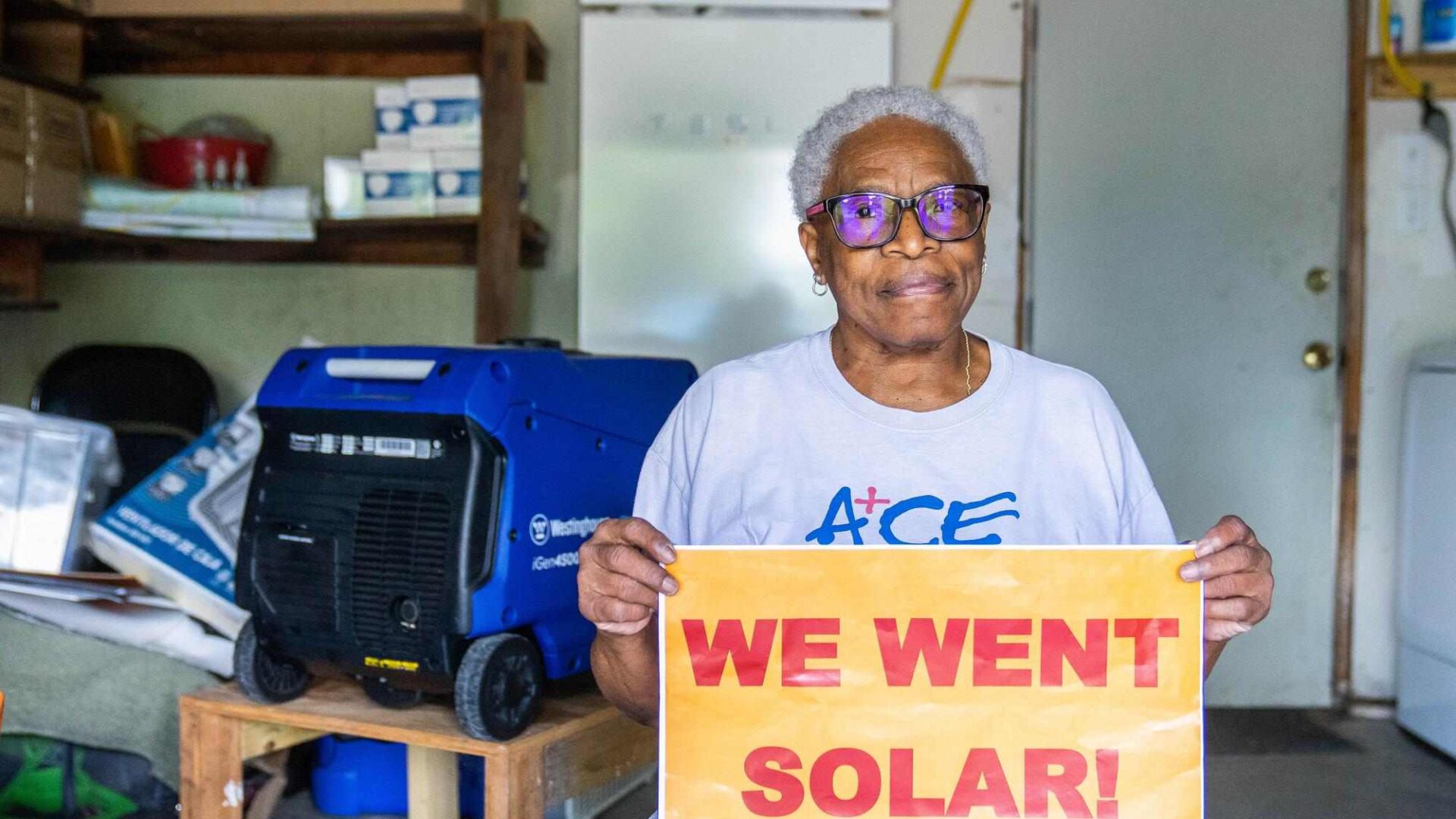Shelter in the storm: How resilience hubs use solar to protect their communities
- Solar accessibility

Natural disasters can strike anywhere, sometimes forcing people from their homes. And when they do, public buildings or houses of worship are a safe gathering place. Now, some communities are taking this to the next level by making these places resilience hubs.
What is a resilience hub?
A resilience hub is a place that provides shelter and necessities during times of need. Necessities include things like energy, food, and water. These hubs can keep people safe. They can also reduce the strain on communities recovering from disasters. That enables them to bounce back faster.
SUN partnered with nonprofit ReImagine Appalachia to host a webinar about resilience hubs. Appalachia has deep historical ties to fossil fuels. In many places it’s behind the curve on the unique benefits of solar and storage resources. As an example, solar with battery storage can provide a quieter, lower-maintenance backup than a diesel generator. This webinar explored an opportunity to address these gaps in resilience.
Electricity is a critical resource for resilience. People may need electricity to power medical devices. They may also need it to preserve food and medication, to stay cool or keep warm, and more. That’s why solar energy and battery storage play such an important role in resilience hubs. When people lose power, they can go to their local resilience hub to access the energy they need.
Ordinary gathering places often lack reliable backup power, like solar with battery storage. They are also less likely to have enough resources like food or medical supplies to sustain many people for days at a time. Resilience hubs, on the other hand, are intentionally stocked with enough supplies for a natural disaster response, plus backup power to serve folks who need it.
Resilience hubs in practice
Webinar panelists shared experiences from areas that are already seeing resilience hub development. In Texas, a local community organization transformed three homes into resilience hubs. They installed solar panels, battery storage, and emergency supplies. And in Puerto Rico, a local church has provided food and resources to those affected by natural disasters. That church recently added solar panels, thanks to SUN’s fundraising efforts.
These hubs represent a concrete action that can strengthen disaster preparedness. “Communities can help protect themselves, and others, by transforming into resilience hubs,” said Dori Wolfe, Houston Area Co-op Coordinator for SUN.
Building resilience hubs requires an investment. It requires supplies, equipment, and solar installations. A solar installation alone can cost more than $24,000 (without tax credits or incentives). Battery storage can also be costly, with prices ranging up to $20,000. Fortunately, communities in Appalachia can access financial help and expert guidance.
“There are a lot of resources available. Places like faith institutions can get help with development and financing,” said Autumn Long, director of the Appalachian Solar Finance Fund. “There’s a lot of interest from Appalachian communities in engaging with this support.”
Resources for building resilience hubs
SUN hopes many communities will be interested in starting a resilience hub. The webinar materials are available as a helpful starting place. And the Appalachian Solar Finance Fund provides assistance to communities expanding solar energy.
“We learn a lot every time there’s a natural disaster,” stated David Ortiz, Puerto Rico Program Director for SUN. “By implementing what we learn, we can turn resilience hubs into beacons of hope and strength.”
Get the latest on solar straight to your inbox.
Fight for your solar rights.
Everyone has the right to go solar. Spread the sunshine nationwide and in your local community by taking action, joining events, and more.
